 Colon polyps are rather common, and there is a specific type of polyps that increases the risk of colon cancer, which is also a widespread problem. According to a new clinical study from the University of Leeds in England, a concentrated form of the omega-3 fatty acid, EPA, which is found in oily fish and fish oil supplements, helps reduce the number of colon polyps. The same is the case with aspirin. The two preparations work differently, however, depending on where in the colon the polyps are found, and aspirin may have long-term side effects. Earlier research has shown that supplements of selenium and antioxidants have a preventive effect, which appears to be even greater.
Colon polyps are rather common, and there is a specific type of polyps that increases the risk of colon cancer, which is also a widespread problem. According to a new clinical study from the University of Leeds in England, a concentrated form of the omega-3 fatty acid, EPA, which is found in oily fish and fish oil supplements, helps reduce the number of colon polyps. The same is the case with aspirin. The two preparations work differently, however, depending on where in the colon the polyps are found, and aspirin may have long-term side effects. Earlier research has shown that supplements of selenium and antioxidants have a preventive effect, which appears to be even greater.
- and help prevent dementia, depression, and impairment of your cognitive skills
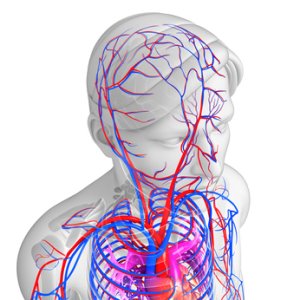 People with elevated levels of omega-3 fatty acids in their blood have better circulation in those parts of the brain that handle learning, language, memory, and other cognitive functions, according to a recent report that is published in the Journal of Alzheimer’s Disease. The scientists also observed a link between blood levels of omega-3 and the rate of dementia and depression. They call their study an important discovery that supports earlier studies, which have shown how simple dietary adjustments such as increasing your intake of oily fish or fish oil supplements help preserve mental skills and a healthy mind.
People with elevated levels of omega-3 fatty acids in their blood have better circulation in those parts of the brain that handle learning, language, memory, and other cognitive functions, according to a recent report that is published in the Journal of Alzheimer’s Disease. The scientists also observed a link between blood levels of omega-3 and the rate of dementia and depression. They call their study an important discovery that supports earlier studies, which have shown how simple dietary adjustments such as increasing your intake of oily fish or fish oil supplements help preserve mental skills and a healthy mind.
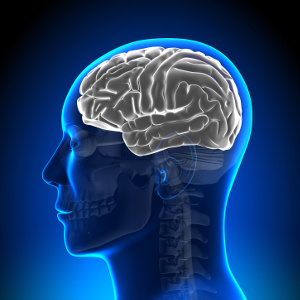 It is commonly known that oily fish and fish oil supplements contain the two omega-3 fatty acids EPA and DHA that are good for the brain. Now, scientists from Singapore have discovered a special omega-3 fatty acid that is of particular importance to brain cells that are surrounded by a protective myeline sheath. The scientists say that their discovery may help prevent brain ageing and lead to the development of new therapies aimed at treating neurological disorders like sclerosis that are associated with myelin damage. Their new study is published in Journal of Clinical Investigation and it appears that fish roe is the best source of these special omega-3 fatty acids that are needed to stimulate the myeline sheath.
It is commonly known that oily fish and fish oil supplements contain the two omega-3 fatty acids EPA and DHA that are good for the brain. Now, scientists from Singapore have discovered a special omega-3 fatty acid that is of particular importance to brain cells that are surrounded by a protective myeline sheath. The scientists say that their discovery may help prevent brain ageing and lead to the development of new therapies aimed at treating neurological disorders like sclerosis that are associated with myelin damage. Their new study is published in Journal of Clinical Investigation and it appears that fish roe is the best source of these special omega-3 fatty acids that are needed to stimulate the myeline sheath.
 Over the past decades, the number of children and teenagers with ADHD has skyrocketed, and the diet has a lot to say. According to a new American-Canadian study, supplementing with all the essential vitamins and minerals can improve young ADHD sufferers’ mood, emotional disturbances, and ability to concentrate. The supplements can even stimulate their growth.
Over the past decades, the number of children and teenagers with ADHD has skyrocketed, and the diet has a lot to say. According to a new American-Canadian study, supplementing with all the essential vitamins and minerals can improve young ADHD sufferers’ mood, emotional disturbances, and ability to concentrate. The supplements can even stimulate their growth.
 According to a study that is published in PLoS Medicine’s Special Issue on Dementia shows that low levels of polyunsaturated fatty acids in the brain may speed up the development of Alzheimer’s disease. It is therefore vital not to shy away from dietary fats. What is important, however, is to consume unspoiled sources of omega-3 and omega-6 fatty acids in the proper balance. Polyunsaturated fatty acids have numerous functions in the brain, on which our nervous system, cardiovascular system, memory, learning ability, and lingual skills depend.
According to a study that is published in PLoS Medicine’s Special Issue on Dementia shows that low levels of polyunsaturated fatty acids in the brain may speed up the development of Alzheimer’s disease. It is therefore vital not to shy away from dietary fats. What is important, however, is to consume unspoiled sources of omega-3 and omega-6 fatty acids in the proper balance. Polyunsaturated fatty acids have numerous functions in the brain, on which our nervous system, cardiovascular system, memory, learning ability, and lingual skills depend.
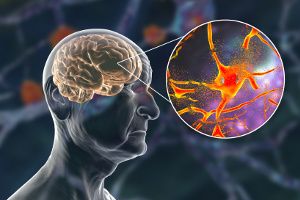 Alzheimer’s is an insidious disease and the leading cause of dementia. It’s also one of the major causes of death in old age. Diet plays a major role in preventing the disease. In fact, having high concentrations of the omega-3fatty acid, DHA, in the blood can halve the risk of developing Alzheimer’s disease, according to a study that is published in Nutrients. DHA (docosahexaenoic acid) is found in oily fish and fish oil supplements. This essential fatty acid is also found in all our cell membranes (including nerve cells) and plays a key role in maintaining our general health and cognitive skills. Unfortunately, modern diets contain far too little omega-3, but science is not quite sure how much we need.
Alzheimer’s is an insidious disease and the leading cause of dementia. It’s also one of the major causes of death in old age. Diet plays a major role in preventing the disease. In fact, having high concentrations of the omega-3fatty acid, DHA, in the blood can halve the risk of developing Alzheimer’s disease, according to a study that is published in Nutrients. DHA (docosahexaenoic acid) is found in oily fish and fish oil supplements. This essential fatty acid is also found in all our cell membranes (including nerve cells) and plays a key role in maintaining our general health and cognitive skills. Unfortunately, modern diets contain far too little omega-3, but science is not quite sure how much we need.
 After giving birth, the mother’s adaptability and resources are put to the test. Also, the mother’s “baby brain” tends to take over. Unfortunately, many new mothers get the baby blues, and around 10 percent develop an actual postpartum depression that requires immediate attention. It is important to focus on the underlying causes that include the course of the delivery plus hormonal, biological, social, and emotional changes.
After giving birth, the mother’s adaptability and resources are put to the test. Also, the mother’s “baby brain” tends to take over. Unfortunately, many new mothers get the baby blues, and around 10 percent develop an actual postpartum depression that requires immediate attention. It is important to focus on the underlying causes that include the course of the delivery plus hormonal, biological, social, and emotional changes.
 Apparently so. Omega-3 is a class of essential fatty acids with a host of different functions in the body. We primarily get omega-3 from oily fish but it is also found in certain other foods. Our intake of omega-3 has been reduced substantially as a result of altered diets and the use of unnatural animal feed. It appears that having more omega-3 in the blood can help us live longer. This was shown in a study that is published in American Journal of Clinical Nutrition. The question is how do we get enough omega-3?
Apparently so. Omega-3 is a class of essential fatty acids with a host of different functions in the body. We primarily get omega-3 from oily fish but it is also found in certain other foods. Our intake of omega-3 has been reduced substantially as a result of altered diets and the use of unnatural animal feed. It appears that having more omega-3 in the blood can help us live longer. This was shown in a study that is published in American Journal of Clinical Nutrition. The question is how do we get enough omega-3?
 Omega-3and omega-6 fatty acids are vital for our brain function, nervous system, and immune defense but small children get too little of these two essential fatty acids. According to a Canadian study, this increases their risk of chronic inflammation and chronic diseases. The intake of omega-3 from oily fish and shellfish is particularly limited. For children who dislike seafood, a fish oil supplement is worth considering for the sake of their health and development.
Omega-3and omega-6 fatty acids are vital for our brain function, nervous system, and immune defense but small children get too little of these two essential fatty acids. According to a Canadian study, this increases their risk of chronic inflammation and chronic diseases. The intake of omega-3 from oily fish and shellfish is particularly limited. For children who dislike seafood, a fish oil supplement is worth considering for the sake of their health and development.
 According to a pilot study from Los Angeles, patients with higher blood levels of omega-3fatty acids in their blood are 75 percent less likely to die from a COVID-19 infection. The scientists behind the study assume it is because of the anti-inflammatory properties of the omega-3 fatty acids and their ability to regulate the immune defense, which is often completely derailed in serious cases of COVID-19. The scientists also mention other nutrients with anti-inflammatory properties.
According to a pilot study from Los Angeles, patients with higher blood levels of omega-3fatty acids in their blood are 75 percent less likely to die from a COVID-19 infection. The scientists behind the study assume it is because of the anti-inflammatory properties of the omega-3 fatty acids and their ability to regulate the immune defense, which is often completely derailed in serious cases of COVID-19. The scientists also mention other nutrients with anti-inflammatory properties.
 If you are pregnant it may be wise to eat salmon. According to a new study it lowers your child's risk of developing asthma, which is a rather common ailment. But what is it in salmon that prevents asthma, and what about those who dislike the taste of fish?
If you are pregnant it may be wise to eat salmon. According to a new study it lowers your child's risk of developing asthma, which is a rather common ailment. But what is it in salmon that prevents asthma, and what about those who dislike the taste of fish?
 Oily fish and fish oil have a high content of the two omega-3 fatty acids, EPA (eicosapentaenoic acid) and DHA (docosahexaenoic acid), that are important for our brain, nervous system, intelligence, and mental health. Modern diets, however, are to blame for our lack of omega-3. A team of scientists from England has found that supplementation with EPA-rich fish oil for 26 weeks improves mental acuity and reaction time in healthy, young adults. This was not the case with DHA-rich oil fish oil, on the other hand. The scientists were surprised to find that EPA is more important than DHA for these cognitive skills.
Oily fish and fish oil have a high content of the two omega-3 fatty acids, EPA (eicosapentaenoic acid) and DHA (docosahexaenoic acid), that are important for our brain, nervous system, intelligence, and mental health. Modern diets, however, are to blame for our lack of omega-3. A team of scientists from England has found that supplementation with EPA-rich fish oil for 26 weeks improves mental acuity and reaction time in healthy, young adults. This was not the case with DHA-rich oil fish oil, on the other hand. The scientists were surprised to find that EPA is more important than DHA for these cognitive skills.
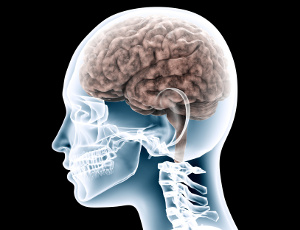 Neuroplasticity refers to the brain ability of brain cells to carry out structural and functional changes that are of vital importance to our development and health. It has been shown that neuroplasticity is impaired in connection with various diseases of the central nervous system, including such conditions as depression and dementia. In a review article that is published in Brain Plasticity, scientists have looked closer at how exercise, the Mediterranean diet, and nutrients like omega-3 and vitamin B12 can improve neuroplasticity by way of a protein called BDNF (brain-derived neurotrophic factor). Selenium is also known to be important for the formation of new brain cells, which can help prevent cognitive decline via other mechanisms.
Neuroplasticity refers to the brain ability of brain cells to carry out structural and functional changes that are of vital importance to our development and health. It has been shown that neuroplasticity is impaired in connection with various diseases of the central nervous system, including such conditions as depression and dementia. In a review article that is published in Brain Plasticity, scientists have looked closer at how exercise, the Mediterranean diet, and nutrients like omega-3 and vitamin B12 can improve neuroplasticity by way of a protein called BDNF (brain-derived neurotrophic factor). Selenium is also known to be important for the formation of new brain cells, which can help prevent cognitive decline via other mechanisms.
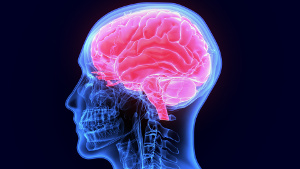 Oily fish and fish oil contain the long-chained omega-3 fatty acids, EPA and DHA, that are of vital importance to the brain, the nervous system, and our mental health throughout life. Today, most people on a global scale lack these omega-3 fatty acids because of altered dietary habits, including the use of unnatural animal fodder. Low intake of omega-3 increases the risk of various ailments such as ADHD, autism, depression, borderline personality disorder (BPD), and bipolar disorder. Fish oil supplementation may therefore offer promise as prevention and part of the therapy used to treat a number of these disorders. The problem with modern diets is their disproportionate content of omega-6 at the expense of omega-3, an imbalance that may derail a number of physiological functions of importance to our mental health, according to a review article published in the science journal, Nutrients.
Oily fish and fish oil contain the long-chained omega-3 fatty acids, EPA and DHA, that are of vital importance to the brain, the nervous system, and our mental health throughout life. Today, most people on a global scale lack these omega-3 fatty acids because of altered dietary habits, including the use of unnatural animal fodder. Low intake of omega-3 increases the risk of various ailments such as ADHD, autism, depression, borderline personality disorder (BPD), and bipolar disorder. Fish oil supplementation may therefore offer promise as prevention and part of the therapy used to treat a number of these disorders. The problem with modern diets is their disproportionate content of omega-6 at the expense of omega-3, an imbalance that may derail a number of physiological functions of importance to our mental health, according to a review article published in the science journal, Nutrients.
- a typical problem that is seen with ageing, overweight, diabetes and other chronic diseases
 Chronic low-grade inflammation has a negative effect on our health. It pummels the body with free radical damage to healthy cells and tissue. Chronic low-grade inflammation is linked to ageing, overweight, type 2 diabetes, cardiovascular disease, and other health problems. In the case of infections, there is also a risk that the immune defense overreacts with hyperinflammation, which can turn out to be very problematic. Now, science has discovered that our gut flora also affects the immune system. Some gut bacteria have a pro-inflammatory effect, while others help fight inflammation. Fish oil’s anti-inflammatory effect involves other mechanisms. Supplements of beneficial gut bacteria, better known as probiotics, and fish oil supplements help increase gut flora diversity. This is good for fighting inflammation, according to a new study published in Nutrients. Another thing to make sure of is to get enough vitamin D.
Chronic low-grade inflammation has a negative effect on our health. It pummels the body with free radical damage to healthy cells and tissue. Chronic low-grade inflammation is linked to ageing, overweight, type 2 diabetes, cardiovascular disease, and other health problems. In the case of infections, there is also a risk that the immune defense overreacts with hyperinflammation, which can turn out to be very problematic. Now, science has discovered that our gut flora also affects the immune system. Some gut bacteria have a pro-inflammatory effect, while others help fight inflammation. Fish oil’s anti-inflammatory effect involves other mechanisms. Supplements of beneficial gut bacteria, better known as probiotics, and fish oil supplements help increase gut flora diversity. This is good for fighting inflammation, according to a new study published in Nutrients. Another thing to make sure of is to get enough vitamin D.
Studies on the effect of fish oil on depression has previously been mixed. For this reason English scientist Julian Martins decided to update our knowledge on this subject. His research shows that the omega-3 fatty acid EPA is more effective against depression than DHA.
 Fish oil contains the omega-3 fatty acids, EPA and DHA, which are important for normal development of the baby’s brain and immune defense. Pregnant women who eat oily fish several times a week help their babies against developing asthma later in life. Oily fish and fish oil supplements have similar effects. This was shown in two studies from the University of South Florida in Tampa, USA. However, pregnant women should avoid predatory fish like tuna that contain mercury. For those who dislike the taste of fish or who simply do not eat enough, fish oil supplements are an option.
Fish oil contains the omega-3 fatty acids, EPA and DHA, which are important for normal development of the baby’s brain and immune defense. Pregnant women who eat oily fish several times a week help their babies against developing asthma later in life. Oily fish and fish oil supplements have similar effects. This was shown in two studies from the University of South Florida in Tampa, USA. However, pregnant women should avoid predatory fish like tuna that contain mercury. For those who dislike the taste of fish or who simply do not eat enough, fish oil supplements are an option.
 The number of seniors in the world is growing steadily which means a surge in problems like cardiovascular disease, cancer, respiratory illnesses, overweight, diabetes, rheumatism, dementia, and Alzheimer’s disease. These diseases that have a widespread impact on human lives and are a burden to society are often linked to chronic inflammation. A group of scientists therefore decided to look closer at studies that have found a positive effect of the omega-3 fatty acids EPA and DHA on cognitive functioning, maintenance of muscle mass, and prevention and treatment of a host of serious diseases that are related to ageing. It is vital to start supplementing early and to take the right doses, according to the new review article published in Nutrients.
The number of seniors in the world is growing steadily which means a surge in problems like cardiovascular disease, cancer, respiratory illnesses, overweight, diabetes, rheumatism, dementia, and Alzheimer’s disease. These diseases that have a widespread impact on human lives and are a burden to society are often linked to chronic inflammation. A group of scientists therefore decided to look closer at studies that have found a positive effect of the omega-3 fatty acids EPA and DHA on cognitive functioning, maintenance of muscle mass, and prevention and treatment of a host of serious diseases that are related to ageing. It is vital to start supplementing early and to take the right doses, according to the new review article published in Nutrients.
 The rate of autism and ADHD has exploded over the past decades, and the problem comes with an enormous human and socio-economic price tag. A study from the University of Copenhagen has shown that fish oil helps adults with autism and ADHD by improving their attention and working memory. In the study that is published in British Journal of Nutrition, the scientists look closer at omega-3 fatty acids in fish oil and their vital role in the brain and nervous system.
The rate of autism and ADHD has exploded over the past decades, and the problem comes with an enormous human and socio-economic price tag. A study from the University of Copenhagen has shown that fish oil helps adults with autism and ADHD by improving their attention and working memory. In the study that is published in British Journal of Nutrition, the scientists look closer at omega-3 fatty acids in fish oil and their vital role in the brain and nervous system.
 Fish oil contains EPA and DHA, two omega-3 fatty acids with a number of different functions in the brain and nervous system. It appears that middle-aged people who consume more oily fish or who take fish oil supplements have improvements in their brain structure and cognitive skills. This was shown in a study that is published in Neurology. The study results are quite interesting because cognitive decline and dementia are increasing problems that affect millions of people worldwide. The study supports previous research where it was seen that having higher concentrations of DHA in the red blood cell can reduce the risk of Alzheimer’s disease by 50 percent.
Fish oil contains EPA and DHA, two omega-3 fatty acids with a number of different functions in the brain and nervous system. It appears that middle-aged people who consume more oily fish or who take fish oil supplements have improvements in their brain structure and cognitive skills. This was shown in a study that is published in Neurology. The study results are quite interesting because cognitive decline and dementia are increasing problems that affect millions of people worldwide. The study supports previous research where it was seen that having higher concentrations of DHA in the red blood cell can reduce the risk of Alzheimer’s disease by 50 percent.
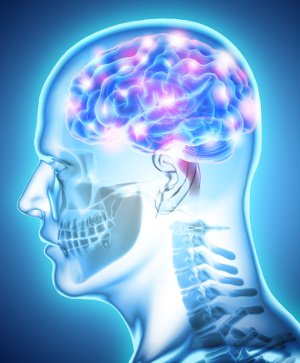 A well-functioning memory is vital for our quality of life. With the increasing number of seniors, however, the dementia rate is on an incline. According to a study that is published in Clinical Nutrition, it looks as if a combination of fish oil and antioxidants such as lutein and zeaxanthin may improve memory in elderly seniors. You can support your brain and memory on a daily basis by eating oily fish or fish oil supplements together with antioxidants from foods such as cabbage, spinach and other leafy greens, and eggs. Another important antioxidant is mezo-zeaxanthin that is found in certain fish and in fish skin.
A well-functioning memory is vital for our quality of life. With the increasing number of seniors, however, the dementia rate is on an incline. According to a study that is published in Clinical Nutrition, it looks as if a combination of fish oil and antioxidants such as lutein and zeaxanthin may improve memory in elderly seniors. You can support your brain and memory on a daily basis by eating oily fish or fish oil supplements together with antioxidants from foods such as cabbage, spinach and other leafy greens, and eggs. Another important antioxidant is mezo-zeaxanthin that is found in certain fish and in fish skin.
 Omega-3 fatty acids are essential, as they are needed to make cell membranes and support a host of biochemical functions. During pregnancy, there is a particular need for the two omega-3 fatty acids, EPA and DHA to support the growth and brain development of the child. Fish oil is a good source of these two fatty acids, and supplementing with them in the third trimester can prolong the pregnancy and increase birth weight, according to a Scandinavian study published in Journal of Nutrition. The study supports earlier studies of pregnant women, where it has been shown that fish oil lowers the risk of preterm delivery and complications such as development of disorders and death.
Omega-3 fatty acids are essential, as they are needed to make cell membranes and support a host of biochemical functions. During pregnancy, there is a particular need for the two omega-3 fatty acids, EPA and DHA to support the growth and brain development of the child. Fish oil is a good source of these two fatty acids, and supplementing with them in the third trimester can prolong the pregnancy and increase birth weight, according to a Scandinavian study published in Journal of Nutrition. The study supports earlier studies of pregnant women, where it has been shown that fish oil lowers the risk of preterm delivery and complications such as development of disorders and death.
 Heart failure affects millions of people worldwide and many die within the first year of being hospitalized with acute heart failure. However, eating a diet that is rich in the omega-3 fatty acid EPA from oily fish and ALA from plant foods such as walnuts is linked to a lower risk of blood clots and early death, according to a new study that is published in Journal of the American College of Cardiology. You can also read more about another compound that improves cardiac function and survival after acute heart failure.
Heart failure affects millions of people worldwide and many die within the first year of being hospitalized with acute heart failure. However, eating a diet that is rich in the omega-3 fatty acid EPA from oily fish and ALA from plant foods such as walnuts is linked to a lower risk of blood clots and early death, according to a new study that is published in Journal of the American College of Cardiology. You can also read more about another compound that improves cardiac function and survival after acute heart failure.
 Most people have experienced a normal headache, while migraines are far more complex. Although the pain can be caused by a number of factors, essential nutrients such as B vitamins, vitamin D, magnesium, fish oil, and coenzyme Q10 may play a vital role according to a review article that is published in Current Pain and Headache Reports. The authors describe how certain nutrients affect underlying mechanisms that may prevent or mitigate different types of headaches.
Most people have experienced a normal headache, while migraines are far more complex. Although the pain can be caused by a number of factors, essential nutrients such as B vitamins, vitamin D, magnesium, fish oil, and coenzyme Q10 may play a vital role according to a review article that is published in Current Pain and Headache Reports. The authors describe how certain nutrients affect underlying mechanisms that may prevent or mitigate different types of headaches.
 Oily fish and fish oil supplements contain EPA and DHA, two types of omega-3 fatty acids that are important for our brain, nervous system, and mental health throughout life. According to a new Irish study, young adults with higher blood levels of omega-3are less likely to develop depression and anxiety. The researchers see a huge therapeutic potential in advising people to increase their omega-3 intake from oily fish or supplements. The problem is that modern diets contain far too little omega-3 and too much omega-6, which contributes to the increased rate of mental illness.
Oily fish and fish oil supplements contain EPA and DHA, two types of omega-3 fatty acids that are important for our brain, nervous system, and mental health throughout life. According to a new Irish study, young adults with higher blood levels of omega-3are less likely to develop depression and anxiety. The researchers see a huge therapeutic potential in advising people to increase their omega-3 intake from oily fish or supplements. The problem is that modern diets contain far too little omega-3 and too much omega-6, which contributes to the increased rate of mental illness.
 Migraine is a common neurological disease that reduces quality of life and results in many sick days. Migraine medication does not work for everyone and many people have adverse effects, so it makes more sense to focus on prevention. A new American study shows that diets with higher levels of omega-3 fatty acids from oily fish can reduce the frequency of migraines compared with eating an average diet. People who dislike the taste of fish can take a high-quality fish oil supplement, instead.
Migraine is a common neurological disease that reduces quality of life and results in many sick days. Migraine medication does not work for everyone and many people have adverse effects, so it makes more sense to focus on prevention. A new American study shows that diets with higher levels of omega-3 fatty acids from oily fish can reduce the frequency of migraines compared with eating an average diet. People who dislike the taste of fish can take a high-quality fish oil supplement, instead.
 People who suffer from dry eyes have reduced tear production. The condition has become increasingly common because of all the hours we spend staring at screens from devices like smartphones, computers, tablets etc. Dry eyes are irritated, and the problem may cause damage to both your eyes and eyesight. However, a team of scientists from the Hokkaido University in Japan has demonstrated that healthy fats such as omega-3 are able to protect the eyes and repair damage. You can also find other useful tips on natural ways to prevent and treat dry eyes.
People who suffer from dry eyes have reduced tear production. The condition has become increasingly common because of all the hours we spend staring at screens from devices like smartphones, computers, tablets etc. Dry eyes are irritated, and the problem may cause damage to both your eyes and eyesight. However, a team of scientists from the Hokkaido University in Japan has demonstrated that healthy fats such as omega-3 are able to protect the eyes and repair damage. You can also find other useful tips on natural ways to prevent and treat dry eyes.
 Lung fibrosis is a condition characterized by accelerating scarring of lung tissue, which impairs breathing, reduces the oxygen level in the blood, and lowers the cellular energy turnover. Some types of lung fibrosis are very aggressive and there is currently no cure. Healthy omega-3 fatty acids from oily fish and fish oil supplements may delay the progression of the disease and postpone the immediate need for lung transplants, according to a study that is published in the journal CHEST.
Lung fibrosis is a condition characterized by accelerating scarring of lung tissue, which impairs breathing, reduces the oxygen level in the blood, and lowers the cellular energy turnover. Some types of lung fibrosis are very aggressive and there is currently no cure. Healthy omega-3 fatty acids from oily fish and fish oil supplements may delay the progression of the disease and postpone the immediate need for lung transplants, according to a study that is published in the journal CHEST.
- and there is focus on nutrient deficiencies
 The whole climate debate has made it increasingly popular to become a vegetarian or a vegan. However, according to a new and comprehensive study from Oxford, this choice of lifestyle may have grave health consequences and can increase your risk of apoplexy, also known as stroke, cerebral hemorrhage or cerebral thrombosis. The study is published in British Medical Journal. Earlier studies also give rise to concern, as a plant-based diet often lacks protein, vitamin D, vitamin B12, iodine, selenium, iron, and omega-3 fatty acids, and that can increase the risk of thyroid disorders, neurological disorders, infections, chronic inflammation, impaired fertility, growth disturbances in children etc. Some of these deficiencies are insidious and difficult to link to the diet.
The whole climate debate has made it increasingly popular to become a vegetarian or a vegan. However, according to a new and comprehensive study from Oxford, this choice of lifestyle may have grave health consequences and can increase your risk of apoplexy, also known as stroke, cerebral hemorrhage or cerebral thrombosis. The study is published in British Medical Journal. Earlier studies also give rise to concern, as a plant-based diet often lacks protein, vitamin D, vitamin B12, iodine, selenium, iron, and omega-3 fatty acids, and that can increase the risk of thyroid disorders, neurological disorders, infections, chronic inflammation, impaired fertility, growth disturbances in children etc. Some of these deficiencies are insidious and difficult to link to the diet.
 Contact sports like football and boxing are associated with frequent blows to the head that can cause physical traumas and long-term effects. However, a new study that is published in Journal of the International Society of Sports Nutrition suggests that high-dosed supplements of omega-3 fatty acids can protect against the damage caused by head traumas in American football. There is even a positive effect on cardiovascular health and joints. Excessive training and high performance sport can also increase the risk of oxidative stress that is linked to acute injury, inflammation, and subsequent development of neurological disease. It is therefore also important to get plenty of antioxidants like vitamins A, C, and E plus selenium and zinc if you engage in sport at a high level.
Contact sports like football and boxing are associated with frequent blows to the head that can cause physical traumas and long-term effects. However, a new study that is published in Journal of the International Society of Sports Nutrition suggests that high-dosed supplements of omega-3 fatty acids can protect against the damage caused by head traumas in American football. There is even a positive effect on cardiovascular health and joints. Excessive training and high performance sport can also increase the risk of oxidative stress that is linked to acute injury, inflammation, and subsequent development of neurological disease. It is therefore also important to get plenty of antioxidants like vitamins A, C, and E plus selenium and zinc if you engage in sport at a high level.
 British scientists have tested whether omega-3 fatty acids from fish oil supplements have a pain-relieving effect on patients with rheumatoid arthritis. As it turns out, consuming fish oils with large quantities of EPA and DHA has the best effect, so make sure to read the label to see how much of the two omega-3 fatty acids your supplement contains. Rheumatoid arthritis and other rheumatic diseases are a result of joint inflammation, so it may also pay off to look into the benefits of an anti-inflammatory diet.
British scientists have tested whether omega-3 fatty acids from fish oil supplements have a pain-relieving effect on patients with rheumatoid arthritis. As it turns out, consuming fish oils with large quantities of EPA and DHA has the best effect, so make sure to read the label to see how much of the two omega-3 fatty acids your supplement contains. Rheumatoid arthritis and other rheumatic diseases are a result of joint inflammation, so it may also pay off to look into the benefits of an anti-inflammatory diet.
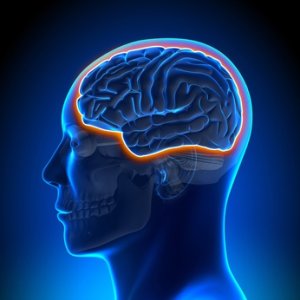 It is common knowledge that omega-3 fatty acids are vital for our brain development and nervous system. Now, researchers from Harvard Medical School in the United States have discovered that they also play an important role in maintaining the blood-brain barrier that protects the central nervous system against bacteria and toxins.
It is common knowledge that omega-3 fatty acids are vital for our brain development and nervous system. Now, researchers from Harvard Medical School in the United States have discovered that they also play an important role in maintaining the blood-brain barrier that protects the central nervous system against bacteria and toxins.
 Premature infants have a higher risk of development disturbances. On a global scale, preterm delivery is the leading cause of death among children younger than five years of age. Pregnant women, who increase their intake of omega-3 fatty acidsby taking supplements of fish oil, are able to lower their risk of preterm delivery, according to a new Cochrane review article. Earlier studies show that increased intake of oily fish can also lower the risk of preterm delivery, but it is important that the expecting mother avoids eating predatory fish such as tuna and other types of fish that are likely to contain too much mercury.
Premature infants have a higher risk of development disturbances. On a global scale, preterm delivery is the leading cause of death among children younger than five years of age. Pregnant women, who increase their intake of omega-3 fatty acidsby taking supplements of fish oil, are able to lower their risk of preterm delivery, according to a new Cochrane review article. Earlier studies show that increased intake of oily fish can also lower the risk of preterm delivery, but it is important that the expecting mother avoids eating predatory fish such as tuna and other types of fish that are likely to contain too much mercury.
 According to a study from Ohio State University, Columbus, USA, people suffering from dry eyes may find relief by consuming more oily fish or taking a fish oil supplement.
According to a study from Ohio State University, Columbus, USA, people suffering from dry eyes may find relief by consuming more oily fish or taking a fish oil supplement.
- and improve their cognition and motor skills
 According to a large meta-analysis, supplementing with omega-3 fatty acids has a positive effect on children by improving their vision, their cognition, and their motor skills. Unfortunately, modern diets provide far too little omega-3. For that reason, health authorities should consider recommending supplements of purified fish oil for pregnant women and children, just like they recommend folic acid, iron, and vitamin D.
According to a large meta-analysis, supplementing with omega-3 fatty acids has a positive effect on children by improving their vision, their cognition, and their motor skills. Unfortunately, modern diets provide far too little omega-3. For that reason, health authorities should consider recommending supplements of purified fish oil for pregnant women and children, just like they recommend folic acid, iron, and vitamin D.
 A growing number of people are affected by depression and anxiety, and there are quite a few who do not benefit from their medicine, which in some cases may even cause side effects. Earlier studies show that lack of omega-3, the essential fatty acids found primarily in oily fish, play a major role in depression. The question is how important is omega-3 for those, who already receive therapy for their depression, and what about those in therapy for anxiety? A group of Dutch scientists set out to answer this question. A thing to make a note of is that it is the two omega-3 fatty acids, EPA and DHA, which have a direct influence on our mood, and when supplementing, it may take some time before the effect is optimal.
A growing number of people are affected by depression and anxiety, and there are quite a few who do not benefit from their medicine, which in some cases may even cause side effects. Earlier studies show that lack of omega-3, the essential fatty acids found primarily in oily fish, play a major role in depression. The question is how important is omega-3 for those, who already receive therapy for their depression, and what about those in therapy for anxiety? A group of Dutch scientists set out to answer this question. A thing to make a note of is that it is the two omega-3 fatty acids, EPA and DHA, which have a direct influence on our mood, and when supplementing, it may take some time before the effect is optimal.
– but what about the mercury? – but what about the mercury?
 Oily fish is a great source of the essential omega-3 fatty acids, EPA and DHA, which are important for the development of the brain and nervous system of the unborn child. Pregnant women with low levels of these two omega-3 fatty acids have a statistically significant increased risk of preterm delivery compared with pregnant women who have high levels of EPA and DHA in their blood. This was shown in a study from SSI in Copenhagen, carried out in collaboration with Harvard T.H. Chan School of Public Health in Boston, the United States. The problem is that many women are afraid to eat oily fish during their pregnancy because of the risk of mercury poisoning. So which fish are the safest for consumption – and what about fish oil supplements?
Oily fish is a great source of the essential omega-3 fatty acids, EPA and DHA, which are important for the development of the brain and nervous system of the unborn child. Pregnant women with low levels of these two omega-3 fatty acids have a statistically significant increased risk of preterm delivery compared with pregnant women who have high levels of EPA and DHA in their blood. This was shown in a study from SSI in Copenhagen, carried out in collaboration with Harvard T.H. Chan School of Public Health in Boston, the United States. The problem is that many women are afraid to eat oily fish during their pregnancy because of the risk of mercury poisoning. So which fish are the safest for consumption – and what about fish oil supplements?
 Epidemiological studies have shown that relatively high doses of omega-3 fatty acids that are found in oily fish and fish oil supplements have a positive effect on neurodegenerative diseases such as sclerosis, but the underlying mechanisms are not known. A mouse study reveals that one particular omega-3 fatty acid is able to control the immune defense and regulate the inflammatory processes in the central nervous system.
Epidemiological studies have shown that relatively high doses of omega-3 fatty acids that are found in oily fish and fish oil supplements have a positive effect on neurodegenerative diseases such as sclerosis, but the underlying mechanisms are not known. A mouse study reveals that one particular omega-3 fatty acid is able to control the immune defense and regulate the inflammatory processes in the central nervous system.
- and the huge difference between the omega-3 forms ALA, EPA, and DHA
 Most people lack omega-3 fatty acids acids that are vital for the brain, the nervous system, and the cardiovascular system. Omega-3 fatty acids also have anti-inflammatory and cancer-fighting properties. It is important to consume omega-3 and omega-6 fatty acids in the right balance in order to benefit from their many health effects. But how do we make sure to get enough omega-3 fatty acids that we can utilize? And what is the difference between ALA, EPA, and DHA?
Most people lack omega-3 fatty acids acids that are vital for the brain, the nervous system, and the cardiovascular system. Omega-3 fatty acids also have anti-inflammatory and cancer-fighting properties. It is important to consume omega-3 and omega-6 fatty acids in the right balance in order to benefit from their many health effects. But how do we make sure to get enough omega-3 fatty acids that we can utilize? And what is the difference between ALA, EPA, and DHA?
 It is commonly known that fish oil with its high content of the two omega-3 fatty acids EPA and DHA helps prevent atherosclerosis. According to a new international study, it appears to be DHA that has the major effect. This new insight, which has surprised the scientists, is relevant to public health because cardiovascular disease continues to be the leading cause of death.
It is commonly known that fish oil with its high content of the two omega-3 fatty acids EPA and DHA helps prevent atherosclerosis. According to a new international study, it appears to be DHA that has the major effect. This new insight, which has surprised the scientists, is relevant to public health because cardiovascular disease continues to be the leading cause of death.
- and could potentially be used for prevention and treatment
 It is commonly known that omega-3 fatty acids are involved in a number of essential functions in the body. One of the fatty acids, DHA, may even have a toxic effect on cancer cells because they are unable to store the fatty acid correctly. In a new Belgian study published in Cell Metabolism, scientists explain the exact mechanisms. They also suggest that omega-3 supplements may be useful in cancer therapy, especially because the average omega-3 intake from the diet is far too limited and because there is a risk of becoming resistant to medical cancer drugs. The new study puts omega-3 fatty acids and their anti-cancer effects in a whole new light.
It is commonly known that omega-3 fatty acids are involved in a number of essential functions in the body. One of the fatty acids, DHA, may even have a toxic effect on cancer cells because they are unable to store the fatty acid correctly. In a new Belgian study published in Cell Metabolism, scientists explain the exact mechanisms. They also suggest that omega-3 supplements may be useful in cancer therapy, especially because the average omega-3 intake from the diet is far too limited and because there is a risk of becoming resistant to medical cancer drugs. The new study puts omega-3 fatty acids and their anti-cancer effects in a whole new light.
 The global differences in prostate cancer rates reveal that this type of cancer is associated with lifestyle. For example, Inuits have a very low rate of prostate cancer, which is attributed to their high intake of omega-3 fatty acids from seal, salmon, and other maritime sources. It turns out that the content of the omega-3 fatty acid EPA in prostate cells is a determining factor for how and if the disease develops, according to a new study that is published in Nutrients. Selenium also has anti-cancer properties, especially with relation to prostate cancer, and there are other dietary measures that can make a difference.
The global differences in prostate cancer rates reveal that this type of cancer is associated with lifestyle. For example, Inuits have a very low rate of prostate cancer, which is attributed to their high intake of omega-3 fatty acids from seal, salmon, and other maritime sources. It turns out that the content of the omega-3 fatty acid EPA in prostate cells is a determining factor for how and if the disease develops, according to a new study that is published in Nutrients. Selenium also has anti-cancer properties, especially with relation to prostate cancer, and there are other dietary measures that can make a difference.
 It is well-known that omega-3fatty acids counteract inflammation, which is the common thread in most chronic diseases. A team of scientists from Tufts University in the United States has now discovered that the omega-3 fatty acids, EPA and DHA, which we get from oily fish and fish oil supplements have different anti-inflammatory mechanisms. Their study is published in the science journal Atherosclerosis and supports earlier studies that have shown how important omega-3 is for preventing circulatory diseases, rheumatism, and other lifestyle diseases.
It is well-known that omega-3fatty acids counteract inflammation, which is the common thread in most chronic diseases. A team of scientists from Tufts University in the United States has now discovered that the omega-3 fatty acids, EPA and DHA, which we get from oily fish and fish oil supplements have different anti-inflammatory mechanisms. Their study is published in the science journal Atherosclerosis and supports earlier studies that have shown how important omega-3 is for preventing circulatory diseases, rheumatism, and other lifestyle diseases.
 Since the 1950s, the rate of asthma has increased dramatically, especially among children and adolescents. Altered diet habits play a significant role, and now a Swedish population study shows that children who get too little omega-3 and too much omega-6 in their diets have an increased risk of developing asthma later in life. There is also evidence that increased intake of omega-3 fatty acids from oily fish or from fish oil supplements can counteract the inflammatory processes that are seen with asthma.
Since the 1950s, the rate of asthma has increased dramatically, especially among children and adolescents. Altered diet habits play a significant role, and now a Swedish population study shows that children who get too little omega-3 and too much omega-6 in their diets have an increased risk of developing asthma later in life. There is also evidence that increased intake of omega-3 fatty acids from oily fish or from fish oil supplements can counteract the inflammatory processes that are seen with asthma.
 People in the Western part of the world consume far too much omega-6, primarily in the form of linoleic acid from vegetable oils and processed foods such as margarine, fries, chips, and ready meals. A new study that is published in The Journal of Physiology shows that this may be harmful during pregnancy and can increase the risk of complications and developmental disorders in the baby.
People in the Western part of the world consume far too much omega-6, primarily in the form of linoleic acid from vegetable oils and processed foods such as margarine, fries, chips, and ready meals. A new study that is published in The Journal of Physiology shows that this may be harmful during pregnancy and can increase the risk of complications and developmental disorders in the baby.
Earlier studies show that consuming too much omega-6 increases the risk of inflammation and cardiovascular disease. And it is essential to balance your intake of omega-3 and omega-6, whether you are pregnant or not.
- throughout life
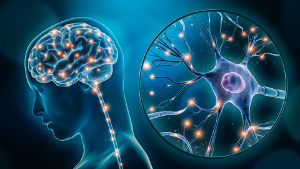 Neurologists agree that the brain’s neurons constantly change in relation to stimuli from the inside and outside environment. That is how we learn new skills and develop our memory. The brain’s ability to adapt and change is called neuroplasticity and doctors have suspected for a long time that it takes place in the synapses. A team of scientists from the University of Freiburg in Germany has discovered that a vitamin A-like compound affects the neurons and their ability to adapt to structure and function. The scientists hope that their discovery can contribute to the development of new therapies for treating brain disorders. Earlier studies have shown that omega-3 fatty acids, vitamin D, and lifestyle in general also affect the brain’s neuroplasticity and development.
Neurologists agree that the brain’s neurons constantly change in relation to stimuli from the inside and outside environment. That is how we learn new skills and develop our memory. The brain’s ability to adapt and change is called neuroplasticity and doctors have suspected for a long time that it takes place in the synapses. A team of scientists from the University of Freiburg in Germany has discovered that a vitamin A-like compound affects the neurons and their ability to adapt to structure and function. The scientists hope that their discovery can contribute to the development of new therapies for treating brain disorders. Earlier studies have shown that omega-3 fatty acids, vitamin D, and lifestyle in general also affect the brain’s neuroplasticity and development.
 Colon polyps are rather common, and there is a specific type of polyps that increases the risk of colon cancer, which is also a widespread problem. According to a new clinical study from the University of Leeds in England, a concentrated form of the omega-3 fatty acid, EPA, which is found in oily fish and fish oil supplements, helps reduce the number of colon polyps. The same is the case with aspirin. The two preparations work differently, however, depending on where in the colon the polyps are found, and aspirin may have long-term side effects. Earlier research has shown that supplements of selenium and antioxidants have a preventive effect, which appears to be even greater.
Colon polyps are rather common, and there is a specific type of polyps that increases the risk of colon cancer, which is also a widespread problem. According to a new clinical study from the University of Leeds in England, a concentrated form of the omega-3 fatty acid, EPA, which is found in oily fish and fish oil supplements, helps reduce the number of colon polyps. The same is the case with aspirin. The two preparations work differently, however, depending on where in the colon the polyps are found, and aspirin may have long-term side effects. Earlier research has shown that supplements of selenium and antioxidants have a preventive effect, which appears to be even greater.







 Most people are unaware of vitamin C’s key role in mental health and mood. According to a large population study that is published in Frontiers in Nutrition, having higher levels of
Most people are unaware of vitamin C’s key role in mental health and mood. According to a large population study that is published in Frontiers in Nutrition, having higher levels of 


 People with elevated levels of
People with elevated levels of  It is commonly known that oily fish and fish oil supplements contain the two omega-3 fatty acids EPA and DHA that are good for the brain. Now, scientists from Singapore have discovered a special omega-3 fatty acid that is of particular importance to brain cells that are surrounded by a protective myeline sheath. The scientists say that their discovery may help prevent brain ageing and lead to the development of new therapies aimed at treating neurological disorders like sclerosis that are associated with myelin damage. Their new study is published in Journal of Clinical Investigation and it appears that fish roe is the best source of these special omega-3 fatty acids that are needed to stimulate the myeline sheath.
It is commonly known that oily fish and fish oil supplements contain the two omega-3 fatty acids EPA and DHA that are good for the brain. Now, scientists from Singapore have discovered a special omega-3 fatty acid that is of particular importance to brain cells that are surrounded by a protective myeline sheath. The scientists say that their discovery may help prevent brain ageing and lead to the development of new therapies aimed at treating neurological disorders like sclerosis that are associated with myelin damage. Their new study is published in Journal of Clinical Investigation and it appears that fish roe is the best source of these special omega-3 fatty acids that are needed to stimulate the myeline sheath. Over the past decades, the number of children and teenagers with ADHD has skyrocketed, and the diet has a lot to say. According to a new American-Canadian study, supplementing with all the essential vitamins and minerals can improve young ADHD sufferers’ mood, emotional disturbances, and ability to concentrate. The supplements can even stimulate their growth.
Over the past decades, the number of children and teenagers with ADHD has skyrocketed, and the diet has a lot to say. According to a new American-Canadian study, supplementing with all the essential vitamins and minerals can improve young ADHD sufferers’ mood, emotional disturbances, and ability to concentrate. The supplements can even stimulate their growth. According to a study that is published in PLoS Medicine’s Special Issue on Dementia shows that low levels of polyunsaturated fatty acids in the brain may speed up the development of Alzheimer’s disease. It is therefore vital not to shy away from dietary fats. What is important, however, is to consume unspoiled sources of
According to a study that is published in PLoS Medicine’s Special Issue on Dementia shows that low levels of polyunsaturated fatty acids in the brain may speed up the development of Alzheimer’s disease. It is therefore vital not to shy away from dietary fats. What is important, however, is to consume unspoiled sources of  Alzheimer’s is an insidious disease and the leading cause of dementia. It’s also one of the major causes of death in old age. Diet plays a major role in preventing the disease. In fact, having high concentrations of the
Alzheimer’s is an insidious disease and the leading cause of dementia. It’s also one of the major causes of death in old age. Diet plays a major role in preventing the disease. In fact, having high concentrations of the  After giving birth, the mother’s adaptability and resources are put to the test. Also, the mother’s “baby brain” tends to take over. Unfortunately, many new mothers get the baby blues, and around 10 percent develop an actual postpartum depression that requires immediate attention. It is important to focus on the underlying causes that include the course of the delivery plus hormonal, biological, social, and emotional changes.
After giving birth, the mother’s adaptability and resources are put to the test. Also, the mother’s “baby brain” tends to take over. Unfortunately, many new mothers get the baby blues, and around 10 percent develop an actual postpartum depression that requires immediate attention. It is important to focus on the underlying causes that include the course of the delivery plus hormonal, biological, social, and emotional changes. Apparently so.
Apparently so. 
 According to a pilot study from Los Angeles, patients with higher blood levels of
According to a pilot study from Los Angeles, patients with higher blood levels of  If you are pregnant it may be wise to eat salmon. According to a new study it lowers your child's risk of developing asthma, which is a rather common ailment. But what is it in salmon that prevents asthma, and what about those who dislike the taste of fish?
If you are pregnant it may be wise to eat salmon. According to a new study it lowers your child's risk of developing asthma, which is a rather common ailment. But what is it in salmon that prevents asthma, and what about those who dislike the taste of fish? Oily fish and fish oil have a high content of the two omega-3 fatty acids, EPA (eicosapentaenoic acid) and DHA (docosahexaenoic acid), that are important for our brain, nervous system, intelligence, and mental health. Modern diets, however, are to blame for our lack of
Oily fish and fish oil have a high content of the two omega-3 fatty acids, EPA (eicosapentaenoic acid) and DHA (docosahexaenoic acid), that are important for our brain, nervous system, intelligence, and mental health. Modern diets, however, are to blame for our lack of  Neuroplasticity refers to the brain ability of brain cells to carry out structural and functional changes that are of vital importance to our development and health. It has been shown that neuroplasticity is impaired in connection with various diseases of the central nervous system, including such conditions as depression and dementia. In a review article that is published in Brain Plasticity, scientists have looked closer at how exercise, the Mediterranean diet, and nutrients like
Neuroplasticity refers to the brain ability of brain cells to carry out structural and functional changes that are of vital importance to our development and health. It has been shown that neuroplasticity is impaired in connection with various diseases of the central nervous system, including such conditions as depression and dementia. In a review article that is published in Brain Plasticity, scientists have looked closer at how exercise, the Mediterranean diet, and nutrients like  Oily fish and fish oil contain the long-chained omega-3 fatty acids, EPA and DHA, that are of vital importance to the brain, the nervous system, and our mental health throughout life. Today, most people on a global scale lack these omega-3 fatty acids because of altered dietary habits, including the use of unnatural animal fodder. Low intake of omega-3 increases the risk of various ailments such as ADHD, autism, depression, borderline personality disorder (BPD), and bipolar disorder. Fish oil supplementation may therefore offer promise as prevention and part of the therapy used to treat a number of these disorders. The problem with modern diets is their disproportionate content of omega-6 at the expense of omega-3, an imbalance that may derail a number of physiological functions of importance to our mental health, according to a review article published in the science journal, Nutrients.
Oily fish and fish oil contain the long-chained omega-3 fatty acids, EPA and DHA, that are of vital importance to the brain, the nervous system, and our mental health throughout life. Today, most people on a global scale lack these omega-3 fatty acids because of altered dietary habits, including the use of unnatural animal fodder. Low intake of omega-3 increases the risk of various ailments such as ADHD, autism, depression, borderline personality disorder (BPD), and bipolar disorder. Fish oil supplementation may therefore offer promise as prevention and part of the therapy used to treat a number of these disorders. The problem with modern diets is their disproportionate content of omega-6 at the expense of omega-3, an imbalance that may derail a number of physiological functions of importance to our mental health, according to a review article published in the science journal, Nutrients. Chronic low-grade inflammation has a negative effect on our health. It pummels the body with free radical damage to healthy cells and tissue. Chronic low-grade inflammation is linked to ageing, overweight, type 2 diabetes, cardiovascular disease, and other health problems. In the case of infections, there is also a risk that the immune defense overreacts with hyperinflammation, which can turn out to be very problematic. Now, science has discovered that our gut flora also affects the immune system. Some gut bacteria have a pro-inflammatory effect, while others help fight inflammation. Fish oil’s anti-inflammatory effect involves other mechanisms. Supplements of beneficial gut bacteria, better known as probiotics, and fish oil supplements help increase gut flora diversity. This is good for fighting inflammation, according to a new study published in Nutrients. Another thing to make sure of is to get enough vitamin D.
Chronic low-grade inflammation has a negative effect on our health. It pummels the body with free radical damage to healthy cells and tissue. Chronic low-grade inflammation is linked to ageing, overweight, type 2 diabetes, cardiovascular disease, and other health problems. In the case of infections, there is also a risk that the immune defense overreacts with hyperinflammation, which can turn out to be very problematic. Now, science has discovered that our gut flora also affects the immune system. Some gut bacteria have a pro-inflammatory effect, while others help fight inflammation. Fish oil’s anti-inflammatory effect involves other mechanisms. Supplements of beneficial gut bacteria, better known as probiotics, and fish oil supplements help increase gut flora diversity. This is good for fighting inflammation, according to a new study published in Nutrients. Another thing to make sure of is to get enough vitamin D. Fish oil contains the omega-3 fatty acids, EPA and DHA, which are important for normal development of the baby’s brain and immune defense. Pregnant women who eat oily fish several times a week help their babies against developing asthma later in life. Oily fish and fish oil supplements have similar effects. This was shown in two studies from the University of South Florida in Tampa, USA. However, pregnant women should avoid predatory fish like tuna that contain mercury. For those who dislike the taste of fish or who simply do not eat enough, fish oil supplements are an option.
Fish oil contains the omega-3 fatty acids, EPA and DHA, which are important for normal development of the baby’s brain and immune defense. Pregnant women who eat oily fish several times a week help their babies against developing asthma later in life. Oily fish and fish oil supplements have similar effects. This was shown in two studies from the University of South Florida in Tampa, USA. However, pregnant women should avoid predatory fish like tuna that contain mercury. For those who dislike the taste of fish or who simply do not eat enough, fish oil supplements are an option. The number of seniors in the world is growing steadily which means a surge in problems like cardiovascular disease, cancer, respiratory illnesses, overweight, diabetes, rheumatism, dementia, and Alzheimer’s disease. These diseases that have a widespread impact on human lives and are a burden to society are often linked to chronic inflammation. A group of scientists therefore decided to look closer at studies that have found a positive effect of the omega-3 fatty acids EPA and DHA on cognitive functioning, maintenance of muscle mass, and prevention and treatment of a host of serious diseases that are related to ageing. It is vital to start supplementing early and to take the right doses, according to the new review article published in Nutrients.
The number of seniors in the world is growing steadily which means a surge in problems like cardiovascular disease, cancer, respiratory illnesses, overweight, diabetes, rheumatism, dementia, and Alzheimer’s disease. These diseases that have a widespread impact on human lives and are a burden to society are often linked to chronic inflammation. A group of scientists therefore decided to look closer at studies that have found a positive effect of the omega-3 fatty acids EPA and DHA on cognitive functioning, maintenance of muscle mass, and prevention and treatment of a host of serious diseases that are related to ageing. It is vital to start supplementing early and to take the right doses, according to the new review article published in Nutrients. The rate of autism and ADHD has exploded over the past decades, and the problem comes with an enormous human and socio-economic price tag. A study from the University of Copenhagen has shown that fish oil helps adults with autism and ADHD by improving their attention and working memory. In the study that is published in British Journal of Nutrition, the scientists look closer at
The rate of autism and ADHD has exploded over the past decades, and the problem comes with an enormous human and socio-economic price tag. A study from the University of Copenhagen has shown that fish oil helps adults with autism and ADHD by improving their attention and working memory. In the study that is published in British Journal of Nutrition, the scientists look closer at  Fish oil contains EPA and DHA, two omega-3 fatty acids with a number of different functions in the brain and nervous system. It appears that middle-aged people who consume more oily fish or who take fish oil supplements have improvements in their brain structure and cognitive skills. This was shown in a study that is published in Neurology. The study results are quite interesting because cognitive decline and dementia are increasing problems that affect millions of people worldwide. The study supports previous research where it was seen that having higher concentrations of DHA in the red blood cell can reduce the risk of Alzheimer’s disease by 50 percent.
Fish oil contains EPA and DHA, two omega-3 fatty acids with a number of different functions in the brain and nervous system. It appears that middle-aged people who consume more oily fish or who take fish oil supplements have improvements in their brain structure and cognitive skills. This was shown in a study that is published in Neurology. The study results are quite interesting because cognitive decline and dementia are increasing problems that affect millions of people worldwide. The study supports previous research where it was seen that having higher concentrations of DHA in the red blood cell can reduce the risk of Alzheimer’s disease by 50 percent. A well-functioning memory is vital for our quality of life. With the increasing number of seniors, however, the dementia rate is on an incline. According to a study that is published in Clinical Nutrition, it looks as if a combination of fish oil and antioxidants such as lutein and zeaxanthin may improve memory in elderly seniors. You can support your brain and memory on a daily basis by eating oily fish or fish oil supplements together with antioxidants from foods such as cabbage, spinach and other leafy greens, and eggs. Another important antioxidant is mezo-zeaxanthin that is found in certain fish and in fish skin.
A well-functioning memory is vital for our quality of life. With the increasing number of seniors, however, the dementia rate is on an incline. According to a study that is published in Clinical Nutrition, it looks as if a combination of fish oil and antioxidants such as lutein and zeaxanthin may improve memory in elderly seniors. You can support your brain and memory on a daily basis by eating oily fish or fish oil supplements together with antioxidants from foods such as cabbage, spinach and other leafy greens, and eggs. Another important antioxidant is mezo-zeaxanthin that is found in certain fish and in fish skin.
 Heart failure affects millions of people worldwide and many die within the first year of being hospitalized with acute heart failure. However, eating a diet that is rich in the omega-3 fatty acid EPA from oily fish and ALA from plant foods such as walnuts is linked to a lower risk of blood clots and early death, according to a new study that is published in Journal of the American College of Cardiology. You can also read more about another compound that improves cardiac function and survival after acute heart failure.
Heart failure affects millions of people worldwide and many die within the first year of being hospitalized with acute heart failure. However, eating a diet that is rich in the omega-3 fatty acid EPA from oily fish and ALA from plant foods such as walnuts is linked to a lower risk of blood clots and early death, according to a new study that is published in Journal of the American College of Cardiology. You can also read more about another compound that improves cardiac function and survival after acute heart failure. Most people have experienced a normal headache, while migraines are far more complex. Although the pain can be caused by a number of factors, essential nutrients such as B vitamins, vitamin D, magnesium, fish oil, and coenzyme Q10 may play a vital role according to a review article that is published in Current Pain and Headache Reports. The authors describe how certain nutrients affect underlying mechanisms that may prevent or mitigate different types of headaches.
Most people have experienced a normal headache, while migraines are far more complex. Although the pain can be caused by a number of factors, essential nutrients such as B vitamins, vitamin D, magnesium, fish oil, and coenzyme Q10 may play a vital role according to a review article that is published in Current Pain and Headache Reports. The authors describe how certain nutrients affect underlying mechanisms that may prevent or mitigate different types of headaches. Oily fish and fish oil supplements contain EPA and DHA, two types of omega-3 fatty acids that are important for our brain, nervous system, and mental health throughout life. According to a new Irish study, young adults with higher blood levels of
Oily fish and fish oil supplements contain EPA and DHA, two types of omega-3 fatty acids that are important for our brain, nervous system, and mental health throughout life. According to a new Irish study, young adults with higher blood levels of  Migraine is a common neurological disease that reduces quality of life and results in many sick days. Migraine medication does not work for everyone and many people have adverse effects, so it makes more sense to focus on prevention. A new American study shows that diets with higher levels of
Migraine is a common neurological disease that reduces quality of life and results in many sick days. Migraine medication does not work for everyone and many people have adverse effects, so it makes more sense to focus on prevention. A new American study shows that diets with higher levels of  People who suffer from dry eyes have reduced tear production. The condition has become increasingly common because of all the hours we spend staring at screens from devices like smartphones, computers, tablets etc. Dry eyes are irritated, and the problem may cause damage to both your eyes and eyesight. However, a team of scientists from the Hokkaido University in Japan has demonstrated that healthy fats such as
People who suffer from dry eyes have reduced tear production. The condition has become increasingly common because of all the hours we spend staring at screens from devices like smartphones, computers, tablets etc. Dry eyes are irritated, and the problem may cause damage to both your eyes and eyesight. However, a team of scientists from the Hokkaido University in Japan has demonstrated that healthy fats such as 
 The whole climate debate has made it increasingly popular to become a vegetarian or a vegan. However, according to a new and comprehensive study from Oxford, this choice of lifestyle may have grave health consequences and can increase your risk of apoplexy, also known as stroke, cerebral hemorrhage or cerebral thrombosis. The study is published in British Medical Journal. Earlier studies also give rise to concern, as a plant-based diet often lacks protein, vitamin D, vitamin B12, iodine, selenium, iron, and omega-3 fatty acids, and that can increase the risk of thyroid disorders, neurological disorders, infections, chronic inflammation, impaired fertility, growth disturbances in children etc. Some of these deficiencies are insidious and difficult to link to the diet.
The whole climate debate has made it increasingly popular to become a vegetarian or a vegan. However, according to a new and comprehensive study from Oxford, this choice of lifestyle may have grave health consequences and can increase your risk of apoplexy, also known as stroke, cerebral hemorrhage or cerebral thrombosis. The study is published in British Medical Journal. Earlier studies also give rise to concern, as a plant-based diet often lacks protein, vitamin D, vitamin B12, iodine, selenium, iron, and omega-3 fatty acids, and that can increase the risk of thyroid disorders, neurological disorders, infections, chronic inflammation, impaired fertility, growth disturbances in children etc. Some of these deficiencies are insidious and difficult to link to the diet. Contact sports like football and boxing are associated with frequent blows to the head that can cause physical traumas and long-term effects. However, a new study that is published in Journal of the International Society of Sports Nutrition suggests that high-dosed supplements of
Contact sports like football and boxing are associated with frequent blows to the head that can cause physical traumas and long-term effects. However, a new study that is published in Journal of the International Society of Sports Nutrition suggests that high-dosed supplements of  British scientists have tested whether
British scientists have tested whether  It is common knowledge that
It is common knowledge that  Premature infants have a higher risk of development disturbances. On a global scale, preterm delivery is the leading cause of death among children younger than five years of age. Pregnant women, who increase their intake of
Premature infants have a higher risk of development disturbances. On a global scale, preterm delivery is the leading cause of death among children younger than five years of age. Pregnant women, who increase their intake of  According to a study from Ohio State University, Columbus, USA, people suffering from dry eyes may find relief by consuming more oily fish or taking a fish oil supplement.
According to a study from Ohio State University, Columbus, USA, people suffering from dry eyes may find relief by consuming more oily fish or taking a fish oil supplement. According to a large meta-analysis, supplementing with
According to a large meta-analysis, supplementing with  A growing number of people are affected by depression and anxiety, and there are quite a few who do not benefit from their medicine, which in some cases may even cause side effects. Earlier studies show that lack of
A growing number of people are affected by depression and anxiety, and there are quite a few who do not benefit from their medicine, which in some cases may even cause side effects. Earlier studies show that lack of  Oily fish is a great source of the essential omega-3 fatty acids, EPA and DHA, which are important for the development of the brain and nervous system of the unborn child. Pregnant women with low levels of these two omega-3 fatty acids have a statistically significant increased risk of preterm delivery compared with pregnant women who have high levels of EPA and DHA in their blood. This was shown in a study from SSI in Copenhagen, carried out in collaboration with Harvard T.H. Chan School of Public Health in Boston, the United States. The problem is that many women are afraid to eat oily fish during their pregnancy because of the risk of mercury poisoning. So which fish are the safest for consumption – and what about fish oil supplements?
Oily fish is a great source of the essential omega-3 fatty acids, EPA and DHA, which are important for the development of the brain and nervous system of the unborn child. Pregnant women with low levels of these two omega-3 fatty acids have a statistically significant increased risk of preterm delivery compared with pregnant women who have high levels of EPA and DHA in their blood. This was shown in a study from SSI in Copenhagen, carried out in collaboration with Harvard T.H. Chan School of Public Health in Boston, the United States. The problem is that many women are afraid to eat oily fish during their pregnancy because of the risk of mercury poisoning. So which fish are the safest for consumption – and what about fish oil supplements? Epidemiological studies have shown that relatively high doses of
Epidemiological studies have shown that relatively high doses of  Most people lack
Most people lack  It is commonly known that fish oil with its high content of the two omega-3 fatty acids EPA and DHA helps prevent atherosclerosis. According to a new international study, it appears to be DHA that has the major effect. This new insight, which has surprised the scientists, is relevant to public health because cardiovascular disease continues to be the leading cause of death.
It is commonly known that fish oil with its high content of the two omega-3 fatty acids EPA and DHA helps prevent atherosclerosis. According to a new international study, it appears to be DHA that has the major effect. This new insight, which has surprised the scientists, is relevant to public health because cardiovascular disease continues to be the leading cause of death. It is commonly known that omega-3 fatty acids are involved in a number of essential functions in the body. One of the fatty acids, DHA, may even have a toxic effect on cancer cells because they are unable to store the fatty acid correctly. In a new Belgian study published in Cell Metabolism, scientists explain the exact mechanisms. They also suggest that omega-3 supplements may be useful in cancer therapy, especially because the average
It is commonly known that omega-3 fatty acids are involved in a number of essential functions in the body. One of the fatty acids, DHA, may even have a toxic effect on cancer cells because they are unable to store the fatty acid correctly. In a new Belgian study published in Cell Metabolism, scientists explain the exact mechanisms. They also suggest that omega-3 supplements may be useful in cancer therapy, especially because the average  The global differences in prostate cancer rates reveal that this type of cancer is associated with lifestyle. For example, Inuits have a very low rate of prostate cancer, which is attributed to their high intake of
The global differences in prostate cancer rates reveal that this type of cancer is associated with lifestyle. For example, Inuits have a very low rate of prostate cancer, which is attributed to their high intake of  It is well-known that
It is well-known that  Since the 1950s, the rate of asthma has increased dramatically, especially among children and adolescents. Altered diet habits play a significant role, and now a Swedish population study shows that children who get too little
Since the 1950s, the rate of asthma has increased dramatically, especially among children and adolescents. Altered diet habits play a significant role, and now a Swedish population study shows that children who get too little  People in the Western part of the world consume far too much omega-6, primarily in the form of linoleic acid from vegetable oils and processed foods such as margarine, fries, chips, and ready meals. A new study that is published in The Journal of Physiology shows that this may be harmful during pregnancy and can increase the risk of complications and developmental disorders in the baby.
People in the Western part of the world consume far too much omega-6, primarily in the form of linoleic acid from vegetable oils and processed foods such as margarine, fries, chips, and ready meals. A new study that is published in The Journal of Physiology shows that this may be harmful during pregnancy and can increase the risk of complications and developmental disorders in the baby. Neurologists agree that the brain’s neurons constantly change in relation to stimuli from the inside and outside environment. That is how we learn new skills and develop our memory. The brain’s ability to adapt and change is called neuroplasticity and doctors have suspected for a long time that it takes place in the synapses. A team of scientists from the University of Freiburg in Germany has discovered that a vitamin A-like compound affects the neurons and their ability to adapt to structure and function. The scientists hope that their discovery can contribute to the development of new therapies for treating brain disorders. Earlier studies have shown that omega-3 fatty acids, vitamin D, and lifestyle in general also affect the brain’s neuroplasticity and development.
Neurologists agree that the brain’s neurons constantly change in relation to stimuli from the inside and outside environment. That is how we learn new skills and develop our memory. The brain’s ability to adapt and change is called neuroplasticity and doctors have suspected for a long time that it takes place in the synapses. A team of scientists from the University of Freiburg in Germany has discovered that a vitamin A-like compound affects the neurons and their ability to adapt to structure and function. The scientists hope that their discovery can contribute to the development of new therapies for treating brain disorders. Earlier studies have shown that omega-3 fatty acids, vitamin D, and lifestyle in general also affect the brain’s neuroplasticity and development. "After about one week of taking the Q10 supplement I could feel a huge difference," says 23-year old Alan Piccini, who has been suffering from extreme fatigue and muscle aches ever since he was a child.
"After about one week of taking the Q10 supplement I could feel a huge difference," says 23-year old Alan Piccini, who has been suffering from extreme fatigue and muscle aches ever since he was a child. “Taking capsules with co-enzyme Q10 has freed me of the severe side effects of my cholesterol lowering medicine,” Mrs Franken explains.
“Taking capsules with co-enzyme Q10 has freed me of the severe side effects of my cholesterol lowering medicine,” Mrs Franken explains.